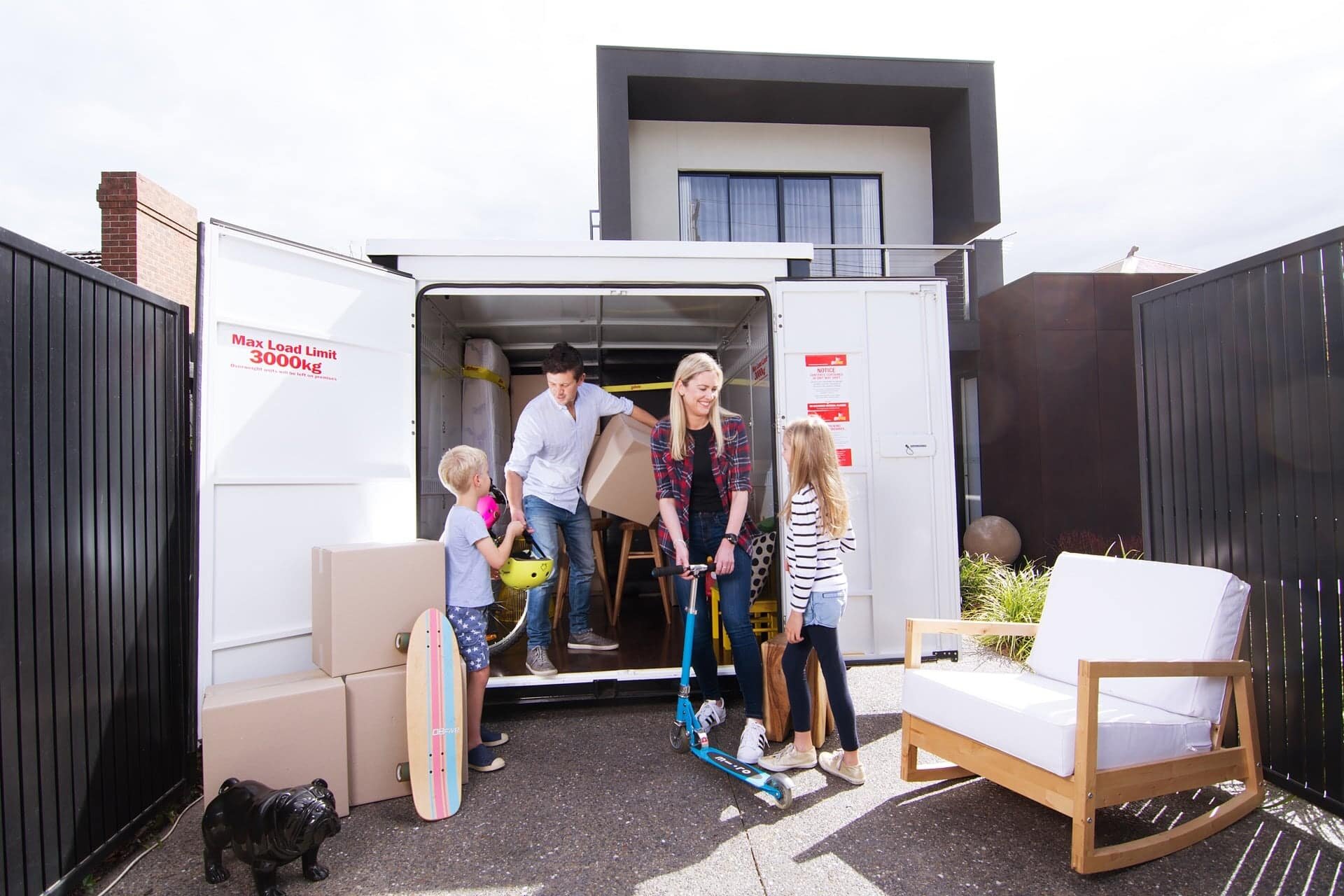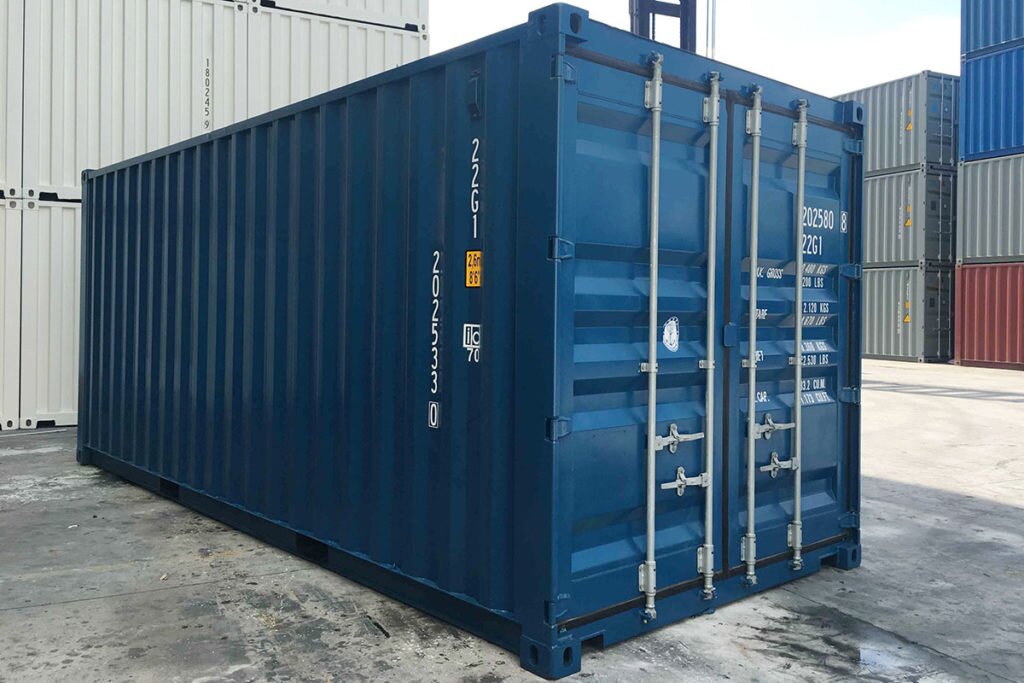Track my order
blog
Moving House? Experts Say You’ll Want to Avoid These 12 Common Mistakes



Moving to a new home is a major upheaval, whether you’re downsizing, relocating closer to family, or just ready for a change of scenery. It’s an exciting new chapter, but let’s face it—if you haven’t moved in a while, it’s easy to forget how much of a headache it can be. To help you keep things smooth and stress-free, we’ve rounded up some expert tips on what not to do when you’re making your next big move, whether it’s across town or across the country.
Moving Mistake #1: Not Making a Checklist
Planning ahead and staying organized can be the difference between a successful move and a stressful one. According to the team at Expo Movers, a solid plan can turn moving into a positive experience:
"Create a detailed checklist of tasks, from decluttering your home to scheduling moving services. Research your new area to get familiar with local amenities and transportation options. Remember to pack essentials separately for easy access during the move. Lastly, stay flexible and positive—while moving can be stressful, it's also a great opportunity for a fresh start!"
Moving Mistake #2: Underestimating the Help You Need
It’s easy to underestimate just how much work moving involves, and many of us fall into the trap of thinking we can handle it all on our own. The moving pros at Dolly.com stress the importance of planning ahead:
“Think about the type of help you’ll need and arrange it early. Having an extra set of hands for heavy furniture and securing a truck rental can save you a lot of time and energy. Keep an eye on costs, too. If you’re hiring movers, ask about any hidden fees or overtime charges—and be sure they’re properly vetted.”
Moving Mistake #3: Relying on Friends & Family for Help
Asking for help is a great first step—but if you’re only planning to assemble your nearest and dearest for your upcoming move, you may want to reconsider. As the team at moveBuddha reminds us, not all helping hands are created equal.
“Stop asking your friends and family to help you move—they’re bad at it! With the wide variety of local and national moving services available, there are plenty of affordable options that people often overlook. Moving container companies, discounts, and free tools like our moving cost calculator make hiring professionals more budget-friendly than you might think.”
“When you add up the cost of all the beer and pizza you’d need to bribe your friends, a professional move can be just as affordable—and it saves everyone’s backs (and your friendships). So do everyone a favor and book with the pros next time.”
Moving Mistake #4: Not Decluttering Before Moving
Before you start packing, take a Marie Kondo-inspired moment to consider what you really need to bring with you. Moving is an excellent opportunity to declutter and simplify your life. By letting go of items you no longer use or need, you not only make your move easier and more cost-effective, but you also create a cleaner, more organized space in your new home.
“One of the biggest mistakes you can make is moving items you no longer need,” say the experts at Pantheon Moving. “Moving unnecessary items can increase costs and complicate the process. Before you start packing, take the time to sort through your belongings. Donate or dispose of anything you don’t need, and you’ll find that the move becomes much easier and less stressful. Plus, unpacking in your new home will be a breeze.”
Moving Mistake #5: Packing Essentials Too Soon
When you're eager to get everything packed up, it's tempting to box up everything in sight. But hold on—some items need to stay accessible until the very last minute.
“Pack your essentials last,” advises the experts at Move Honcho. “Keep important items like medication, toiletries, and tools in a personal bag or in boxes that stay open until the last day. Start packing early, ideally 10 days in advance, but focus on items you won’t need anytime soon—like storage items and décor. This way, you’ll avoid the stress of digging through boxes for something you need right away.”
Moving Mistake #6: Forgetting to Label Boxes
Speaking of essentials—don’t pack that label maker away just yet! It’s easy to skip labeling in the rush of packing, but this small step can save you hours of frustration, according to the team at Q-Shark Moving Company.
“Imagine trying to find your essentials among a mountain of boxes all labeled ‘stuff.’ Traditional advice suggests labeling boxes by location—like ‘bathroom,’ ‘bedroom,’ or ‘kitchen’—but why stop there? Get specific. Mark boxes with details like ‘clothes,’ ‘shoes,’ ‘books,’ or ‘kitchen utensils.’ This way, you’ll know exactly where everything is, helping you settle in faster.”
The experts at Keep On Moving Company agree: “Plan ahead and label everything clearly. Not only will this save you time during unpacking, but it also helps movers know where each box belongs. This minimizes confusion, reduces the risk of items being misplaced or damaged, and, if your movers charge by the hour, can even save you money by speeding up the process.”
Moving Mistake #7: Skipping the Inventory List
Once you’ve moved everything into your new home, the last thing you want is to spend hours searching for the essentials. That’s why keeping an inventory list is so important, according to the team at Interstate Group Holdings:
“Keeping a list of each box's contents is a crucial practice that can save hours of frustration. Labeling each box with its destination and a quick note on its contents can work for smaller moves (like ‘guest room linens’), but for larger or international relocations, you’ll need a more detailed approach. Document the contents of each box and label them in sequence (like ‘Box 3 of 34’). The more organized your inventory, the easier it will be to find exactly what you need once you’re in your new space.”
Moving Mistake #8: Not Buying a Shipping Container to Move
When it comes to moving, having the right tools can make all the difference. That’s why investing in a shipping container is so beneficial, according to Nik Dimoski, Boxhub’s Territory Manager in the Midwest:
“Purchasing a shipping container for your move can significantly simplify the process. Unlike rental options, owning a container means no strict deadlines or rental terms to worry about. You can take your time to pack, move, and unpack at your own pace, reducing stress and allowing for a smoother transition. Whether you’re moving across the country or just a few blocks away, a shipping container offers unmatched convenience and flexibility.”
“Shipping containers aren’t just useful for transporting your belongings. They can also be repurposed as a permanent fixture on your new property. With a few modifications—such as adding locks, windows, and shelves—a shipping container can become an affordable and versatile storage solution, eliminating the need to purchase a separate garage or shed. This dual functionality makes them a smart investment for any move.”
Moving Mistake #9: Not Measuring Furniture and Doorways
One of the most common moving blunders is not measuring your furniture and doorways before the big day. To avoid your own Ross Geller-style “PIVOT!” moment, keep your tape measure handy.
“Nothing’s more frustrating than realizing your favorite couch won’t fit through the door of your new home,” says Vlad Kandybovich at Q-Shark Moving Company. “Taking the time to measure your large pieces and the entrances to your new place beforehand can save you a lot of headaches. This simple step ensures that everything fits where it should, making your move smoother and less stressful.”
Moving Mistake #10: Not Loading Your Moving Truck Strategically
Loading a moving truck is more than just tossing boxes in and hoping for the best. It's an art that, when done correctly, can save you a ton of time, space, and headaches.
“No matter how spacious your moving truck seems, it's crucial to load it carefully,” advises the team at Move Honcho. “Load everything tightly and securely. This not only maximizes space but also prevents items from shifting and getting damaged during transit. When loading, aim to create even, horizontal tiers. Start with heavy items like dressers on the bottom, and stack lighter boxes and loose items on top. Think of it like playing a game of Tetris—everything should fit snugly to avoid wasted space and protect your belongings.”
Moving Mistake #11: Not Researching Moving Companies
Choosing a moving company can feel like a gamble, but it doesn’t have to be if you know what to look for. Many people make the mistake of going with the first company they find or choosing based solely on price, which can lead to disappointment, unexpected costs—or even damages. Before you sign on the dotted line, invest a little time to find a reliable, professional moving company that will treat your belongings with care and respect.
“I can’t stress enough the importance of thoroughly researching moving companies,” says the marketing director at 3 Men Movers. “Take the time to read reviews and testimonials to get a sense of past customers’ experiences. Make sure the company is licensed and insured to protect against potential damages or losses. Always collect multiple quotes to ensure you’re getting the best service for your needs.”
The experts at Moovers Chicago advise, "Whether moving locally or out of state, narrow down your search to about three companies that are licensed and insured. Then, as important, book your move with a company that handles the move from start to finish and does not subcontract the move, especially when moving out of state. Having to deal with multiple companies to get an estimate, book, pack, wrap, load, possibly store, drive, and then unload—and not having a single contact who can keep you updated directly—could create many issues. A local company, like Moovers Chicago, manages the entire process, from booking to servicing the shipments at both locations."
Moving Mistake #12: Packing Clothes in Plastic Garbage Bags
As moving day approaches and packing drags on, it’s tempting to reach for plastic garbage bags to finish the job. However, these bags can quickly become a major hassle when it’s time to load your moving truck.
“Packing things, particularly clothes, in plastic garbage bags might seem easy and convenient, especially if you’re pressed for time,” says the team at All American Moving & Storage. “However, the issue is that plastic bags full of ‘stuff’ can’t be stacked in the moving truck. This can lead to additional trips, increasing your costs if you’re hiring a professional moving company, or costing you valuable time if you’re moving yourself. To avoid these issues, it’s better to use boxes or specialized moving containers that are easier to load and secure.”
Bonus Advice from Billy.com: Common Moving Mistakes to Avoid
The team at Billy.com, a well-known leads-providing company that collaborates with top moving experts, has compiled an extra list of common moving mistakes to help you make your move smoother:
• Start packing early: Don’t wait until the last minute.
- • Declutter: Lighten your load and simplify the move.
- • Use quality packing supplies: Keep your movers safe and your items secure.
- • Get multiple quotes: Compare offers to find the best deal.
- • Prioritize insurance: Never compromise on protecting your belongings.
- • Choose reputable movers: Avoid unlicensed or inexperienced companies.
Moving can be a daunting task, but with the right preparation and strategy, you can avoid these common mistakes and make your move as smooth as possible. If you're considering buying a shipping container to help with your move, we're here to help! Request a quote today and see how we can make your moving experience easier and more efficient.

About Hannah Swinkin
Hannah is a B2B marketing leader with a passion for container upcycling projects and cargotecture. She sharpened her marketing expertise at disruptive tech companies transforming antiquated industries, including shipping, parking, and commercial real estate.







Continue Shopping
Loading cart